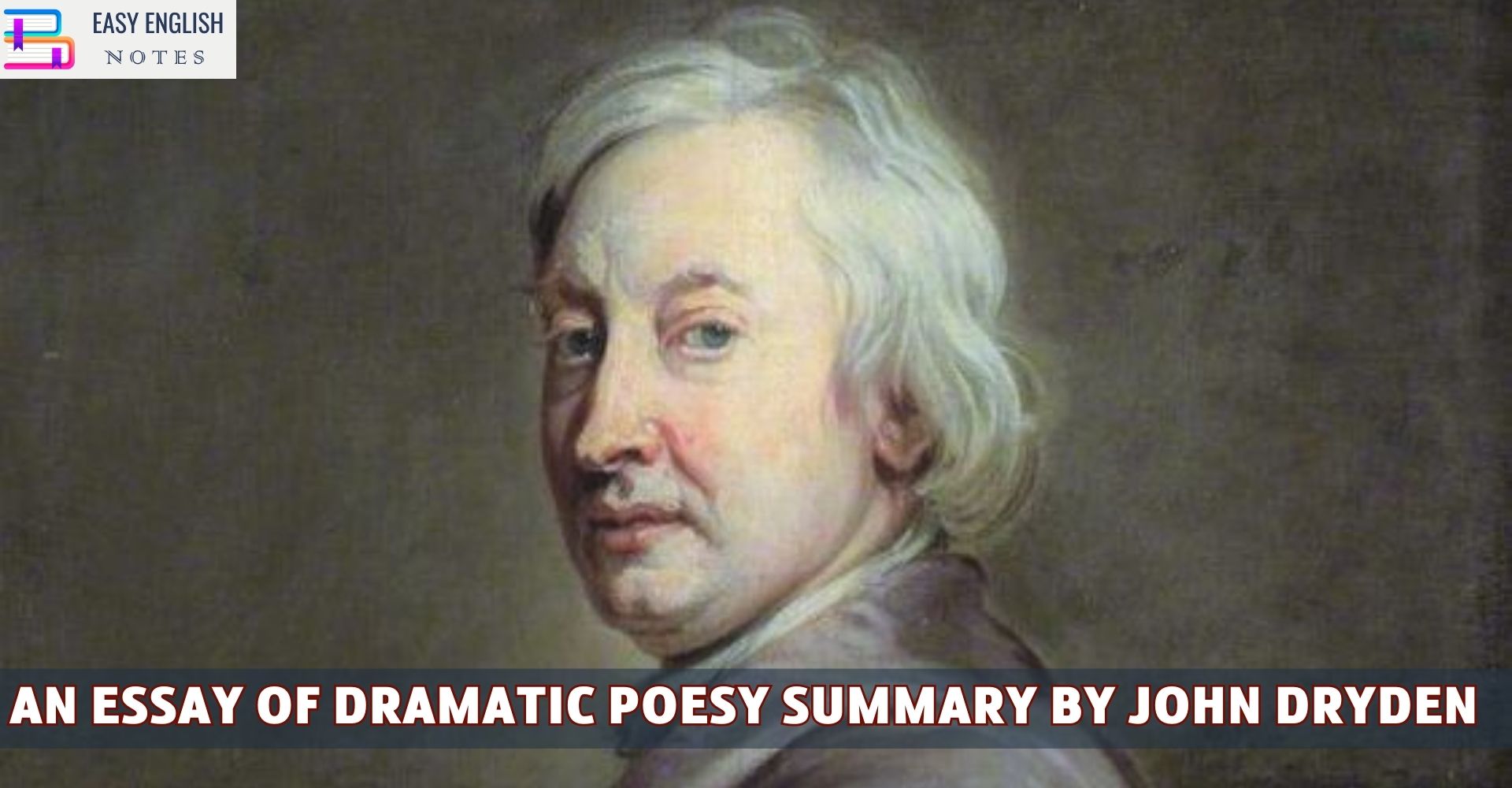An Essay on Dramatic Poesy’ was written with a deliberate purpose for vindicating the English drama from Shakespeare downwards against the unjust censure of those who were disposed to condemn it on the score of its violation of the French neo-classical rules. The aim was patriotic and the tone, here and there, is patently enthusiastic but the defense is based on sound and convincing reason. The very opening of Neander’s defense (and Neander is Dryden himself) strikes the key-note of the entire attitude which runs through the whole argument: ‘I shall grant Lisideius, without much dispute a great part of what he has urged against us: for I acknowledge, that the French contrive their plots more regularly, and observe the law of comedy and decorum of the stage with more exactness than the English. Further, I deny not that he taxed us justly in some irregularities of ours; yet after all, I am of opinion that neither our faults nor their virtues are considerable enough to place them above us.”
Then as the argument proceeds he clearly brings out the serious limitations of the French drama which arises from the exact observance of the three dramatic unities. To support his stand he quotes the remark of Corneille one of the great pillars of the French drama, to the effect that only a practicing dramatist can realize how many beauties he is constrained to keep out of his play in his anxiety to remain faithful to the requirements of the unities.
Thus the French only one action, consisting only of the most essential incidents which are logically and necessarily connected each to each. The result is an utter barrenness springing from the slightness of the plot, and the exclusion of the tumult, noise, violence and energy of life. The English dramatists introduce an underplot engaging a number of subsidiary figures; they bring events of a longer time within the compass of the play, and mix together passion and mirth in one and the same play. The variety resulting from the joint position of the diversity of events and emotions, if skillfully managed, is not incompatible with the larger unity of the whole and at the same time it is conducive to the richness and vitality of life represented in the play.
Also Read :
- Compare Hamlet with Macbeth, Othello and other Tragedies
- “The Pardoner’s Tale” is the finest tale of Chaucer
- Prologue to Canterbury Tales – (Short Ques & Ans)
- Confessional Poetry – Definition & meaning
- Line By Line Explanation Of The Poem The Eve of St. Agnes
Again the brief compass of the French regular plot obliges the dramatist to concentrate on the character and affairs of the central figure in the play, while other characters have to be sketched slightly or left out altogether in the stage of moving puppets. But in irregular Shakespeare as well as in regular Jonson the English can point to a large variety of characters apart from the protagonist who shine in the light of life unborrowed of the central luminary round which they are grouped.
The defenders of the French drama have argued that the reduction of the multiplicity of events in the plot has provided the dramatists ampler space for poetry and elaborate delineation of passion. But Dryden rightly confesses that their verses are coldest, because their speeches are so many declamations which tire the ear but leave the heart untouched. It is an undeniable fact that short speeches and replies are more apt to move the passions and beget concernment in us than long declamations; for it is unnatural for any one in a gust of passion to speak long together, or for another in the same condition to suffer him, without interruption.”
The definition of a play is a lively imitation of nature of which external events are the body, and passions and humours are the soul. The beauties we find in the regular French plays are the beauties of a statue not a living man. For the warmth of real passion is lacking in them.
PLEASE HELP ME TO REACH 1000 SUBSCRIBER ON MY COOKING YT CHANNEL (CLICK HERE)











